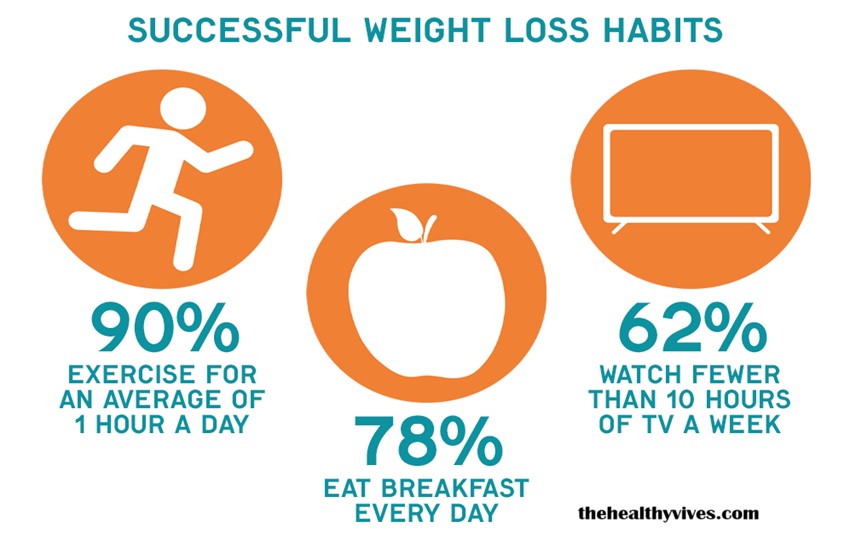
Where Can You Find Daily Motivation for Weight Loss for beginners Initiating a weight loss journey can evoke a mix of excitement and apprehension, particularly for those who are new to the process. Many individuals may feel inundated by the vast array of information, the swift emergence of trendy diets, and the societal pressure to achieve rapid results. This overwhelming environment can foster feelings of frustration, confusion, and even discouragement. Beginners frequently encounter obstacles such as developing new dietary habits, integrating consistent physical activity, and managing emotional eating. This journey necessitates not only physical transformations but also a significant shift in mindset, which can often seem like a formidable challenge.
Motivation is crucial in surmounting these obstacles and is vital for reaching and maintaining weight loss objectives. In the absence of motivation, it is easy to lose focus on your goals, particularly when confronted with setbacks or gradual progress. Recognizing the underlying reasons for your desire to lose weight—be it for health improvements, enhanced self-esteem, or a better quality of life—can serve as a powerful impetus for change. A robust sense of motivation can empower you to persevere through challenging days, remain dedicated to your objectives, and ultimately foster enduring lifestyle modifications.
Step-by-Step Guide to Preparing Fat Burning Coffee Recipe- Step-by-Step Guide to Preparing Fat Burning Coffee Recipe
This article aims to offer practical advice and strategies intended to inspire and sustain motivation for novices embarking on their weight loss journey. By examining various methods for goal setting, nurturing a positive mindset, establishing a support network, and discovering enjoyment in the process, you can equip yourself with the necessary tools to tackle the challenges that lie ahead. With the appropriate mindset and strategies in place, you can transform your weight loss journey into a rewarding and empowering experience.
Daily weight loss motivation
Motivation serves as a vital catalyst for behavioral change, especially in the context of weight loss. It encompasses the underlying reasons, aspirations, and incentives that drive individuals to pursue their objectives. Gaining insight into what motivates you at the outset of a weight loss journey can be instrumental in achieving success. Motivation functions as the energy that encourages healthier choices, adherence to exercise regimens, and resilience in the face of obstacles. In its absence, the risk of reverting to previous habits significantly increases.
Intrinsic vs. Extrinsic Motivation
Motivation can be classified into two primary categories: intrinsic and extrinsic.
Intrinsic Motivation is characterized by an internal impetus to engage in an activity for its inherent value. It arises from personal fulfillment, enjoyment, or a sense of accomplishment. For instance, if you find pleasure in being physically active or appreciate the health advantages of consuming nutritious foods, you are driven by intrinsic motivation. This form of motivation is often associated with more enduring changes, as it is aligned with personal values and interests.
Conversely, Extrinsic Motivation is influenced by external factors. This may include rewards, recognition, or the aspiration to conform to societal standards. For example, an individual might be motivated to lose weight to achieve a particular dress size or to gain approval from others. While extrinsic motivation can yield short-term results, it may lack the sustainability of intrinsic motivation, as it frequently depends on external validation or incentives.
Comprehending the significance of motivation and identifying whether your drive stems from intrinsic or extrinsic factors enables you to develop a more tailored and effective strategy for your weight loss journey. This insight not only enhances your commitment but also promotes a healthier relationship with food and physical activity, ultimately resulting in enduring lifestyle changes.

Establishing Realistic and Attainable Goals
Establishing realistic and attainable goals is a crucial aspect of any weight loss endeavor. Clear objectives provide direction, concentration, and motivation, allowing individuals to monitor their progress and acknowledge achievements throughout the process. A widely recognized framework for goal-setting is the SMART criteria, which encompasses Specific, Measurable, Achievable, Relevant, and Time-bound elements. This methodology ensures that goals are clearly defined and feasible, thereby enhancing the chances of success.
The Significance of SMART Goals
Specific: Goals must be precise and well-defined, addressing the questions of what, why, and how. For example, rather than stating, “I want to lose weight,” a specific goal would articulate, “I aim to lose 10 pounds within three months by adhering to a balanced diet and exercising three times weekly.”
Measurable: Establishing measurable goals enables you to monitor progress and maintain accountability. Employ quantifiable metrics to assess your achievements. For instance, tracking weight loss in pounds or counting the number of workouts completed each week offers clear indicators of advancement.
Achievable: Goals should be realistic and attainable, considering your current lifestyle, obligations, and available resources. Setting excessively ambitious goals may result in frustration and burnout. Instead, ensure that your objectives are challenging yet realistic, fostering a sense of accomplishment.
Relevant: Your goals should correspond with your broader aspirations and values. Reflect on how your weight loss objectives integrate into your overall health and wellness aims. For instance, if your primary motivation is to enhance your energy levels, a relevant goal might emphasize adopting healthier eating habits rather than solely concentrating on weight reduction.
Time-bound: Establishing a deadline for your goals instills a sense of urgency and accountability. In the absence of a timeframe, it is easy to procrastinate or lose focus. A time-bound goal, such as “I will lose 5 pounds in the upcoming month,” provides a clear timeline to strive towards.
Creating a Positive Mindset
The path to weight loss is as much a psychological journey as it is a physical one. A positive mindset is essential for achieving success in weight loss, as it significantly affects motivation, resilience, and overall health. By fostering an optimistic perspective, individuals are more likely to remain dedicated to their objectives, navigate challenges effectively, and cultivate a healthier relationship with food and physical activity.
The Importance of Mindset in Achieving Weight Loss Goals
Your mindset influences your beliefs and attitudes regarding weight loss, which in turn affects your reactions to challenges and setbacks. A positive mindset can assist you in:
Sustaining Motivation: When you have confidence in your ability to succeed, you are more inclined to take consistent steps toward your objectives, even when faced with difficulties.
Welcoming Challenges: A growth-oriented mindset encourages you to perceive obstacles as chances for learning and development, rather than as insurmountable hurdles.
Building Resilience: A positive mindset enhances resilience, allowing you to recover from setbacks and maintain your focus on long-term achievements.
Methods for Fostering a Positive Attitude
Affirmations: Positive affirmations are impactful statements that reinforce your self-esteem and dedication to your goals. Compiling a list of affirmations related to your weight loss journey—such as “I am capable of reaching my goals” or “I choose to nourish my body with healthy foods”—can enhance your confidence and promote a positive mindset. Recite these affirmations daily, particularly during times of self-doubt.
Visualization: Visualization entails picturing yourself accomplishing your weight loss objectives. Dedicate a few minutes each day to envisioning your ideal self—how you appear, how you feel, and the activities you enjoy. This practice not only strengthens your commitment but also makes your goals seem more achievable and tangible.

Finding Your “Why”
Encouragement to Recognize Personal Motivations
Take a moment to consider the reasons behind your desire to lose weight. Is it to enhance your overall health, mitigate the risk of chronic illnesses, or boost your energy levels? Your motivation may also arise from a wish to feel more self-assured in social settings or to engage in physical activities that you previously found challenging. Additionally, you might aim to foster a healthier lifestyle for your family or to serve as a positive role model for your children. Regardless of your specific motivations, recognizing them is crucial for establishing a solid foundation for your journey.
Common motivations for pursuing weight loss include
Health: Lowering blood pressure, enhancing cholesterol levels, managing diabetes, or decreasing the risk of heart disease.
Confidence: Feeling more at ease in your body, elevating self-esteem, or perceiving yourself as more attractive.
Lifestyle: Engaging in enjoyable activities, improving mobility, or enriching your overall quality of life.
Methods for Documenting and Reflecting on These Motivations
Journaling: Dedicate time to articulate your reasons for wanting to lose weight in a specific journal. This practice can be a significant exercise that not only clarifies your motivations but also serves as a reference point when you seek encouragement. Consider revisiting your entries from time to time to remind yourself of your initial intentions.
Create a Vision Board: A vision board visually encapsulates your goals and motivations. Gather images, quotes, and affirmations that resonate with your reasons for weight loss. Position the board in a prominent location to keep your motivations at the forefront of your daily life.
Daily Affirmations: Integrate your “why” into daily affirmations. For instance, you might say, “I am losing weight to enhance my health and boost my confidence.” Repeating these affirmations can strengthen your commitment and keep your motivations vivid in your mind.
Building a Support System
Initiating a weight loss journey can present both rewarding experiences and significant challenges. A robust support system can greatly improve your likelihood of achieving your goals. Engaging with a network of supportive individuals—be they friends, family, or members of online forums—can offer essential encouragement, motivation, and accountability as you navigate the various phases of your journey.
The Importance of a Support Network
Encouragement and Motivation: Being surrounded by individuals who share similar aspirations or comprehend your challenges can provide a crucial motivational uplift during critical moments. A supportive network can celebrate your achievements and offer encouragement during tough times, thereby helping you maintain your commitment to your weight loss objectives.
Accountability: Communicating your goals to others fosters a sense of obligation. When you have someone to whom you report or check in with regularly, you are more inclined to adhere to your plan and resist the urge to deviate. Accountability partners can serve as reminders and assist you in maintaining focus on your objectives.
Emotional Support: The weight loss process can evoke a spectrum of emotions, including frustration, self-doubt, and excitement. A supportive network can aid you in processing these emotions and reassure you that you are not alone in your experience. Connecting with others facing similar challenges can cultivate a sense of community and alleviate feelings of isolation.
Resource Sharing: Your support network can serve as a valuable repository of information and resources. Friends, family, or online community members can provide tips, recipes, workout suggestions, and personal insights that may enhance your journey. This exchange of knowledge can broaden your understanding and help you uncover new strategies for success.
In summary, establishing a support system is an essential element for effective weight loss. By engaging with supportive individuals, pursuing accountability, and communicating your experiences, you can bolster your motivation and determination. A robust support network not only renders the journey more pleasurable but also elevates your chances of reaching and maintaining your weight loss objectives. Recognize the strength of community, and keep in mind that collectively, you can navigate obstacles and rejoice in successes throughout the process.
Tracking Progress and Celebrating Achievements
One of the most effective approaches to maintaining motivation during your weight loss journey is to monitor your progress and acknowledge your accomplishments. Keeping track of your advancements not only offers essential feedback regarding your efforts but also strengthens your dedication to your objectives. Celebrating milestones, regardless of their size, fosters enthusiasm and inspires you to persist in your endeavors.
Significance of Progress Monitoring
Accountability: Consistently tracking your progress holds you accountable to both yourself and your aspirations. It promotes regularity in your efforts, as having a concrete record of your activities and outcomes increases the likelihood of adhering to your plan.
Insight into Your Journey: Monitoring your progress yields valuable insights into effective strategies and areas that may require modification. Whether you are recording weight, measurements, or fitness levels, this information can assist you in recognizing patterns, comprehending your body’s reactions, and making informed choices regarding your diet and exercise regimen.
Motivation and Encouragement: Observing tangible outcomes, whether through weight reduction or enhanced fitness levels, can serve as a significant source of motivation. Regular updates on your progress remind you of your dedication and help maintain your focus on long-term objectives.
Various Methods for Tracking
Journals: Maintaining a weight loss journal enables you to document daily food consumption, workouts, and emotional states. This practice can assist in identifying patterns in your eating behaviors, emotional triggers, and exercise habits. Additionally, writing about your experiences can act as an emotional release and reinforce your commitment.
Apps: A variety of mobile applications are specifically designed for tracking weight loss and fitness progress. Applications such as MyFitnessPal, Lose It!, or Fitbit allow you to log meals, monitor physical activity, and track weight changes over time. Many of these applications also feature community aspects, enabling you to connect with others on similar paths.

Incorporating Variety and Fun into the Journey
Embarking on a weight loss journey can often seem overwhelming; however, it need not be a tedious endeavor. Infusing variety and enjoyment into your routine is essential for maintaining motivation and ensuring that the process remains pleasurable. When you find joy in your activities, you are more inclined to remain committed, which is vital for achieving long-term success. Below are strategies to introduce excitement and diversity into your weight loss journey.
The Importance of Enjoyment and Variety in Weight Loss
Boosts Motivation: Participating in enjoyable activities enhances your motivation to maintain consistency. When workouts and meals are engaging and stimulating, they transform from a mundane obligation into a delightful aspect of your daily life.
Facilitates Adherence: Incorporating variety helps to alleviate boredom, a significant obstacle to maintaining a weight loss regimen. By frequently altering your workouts and meals, you are less likely to feel overwhelmed or disinterested, thereby making it easier to stay aligned with your objectives.
Encourages Discovery: Exploring new activities or foods can lead to the discovery of what you genuinely enjoy. This exploration can enrich your weight loss experience, allowing you to identify what resonates with you on a personal level.
Ideas for Enjoyable Workouts
Group Classes: Consider enrolling in group fitness classes such as Zumba, spinning, kickboxing, or dance. These classes create a lively environment and promote a sense of community, transforming workouts into social gatherings rather than solitary chores
Outdoor Activities: Engage in outdoor pursuits such as hiking, biking, or playing sports. Being in nature not only introduces variety but also elevates your mood, making exercise feel less burdensome.
Dance Workouts: Integrate dance into your fitness regimen. Dance workouts, whether in a class setting or through online videos at home, can serve as a fun and effective method for burning calories while allowing for self-expression.
Fitness Challenges: Get involved in fitness challenges or events like charity walks, obstacle courses, or fun runs. These activities can instill a sense of achievement and foster community engagement.
Staying Committed During Setbacks
Embarking on a weight loss journey is frequently characterized by a series of fluctuations. Initial motivation may be robust, yet it is typical for individuals to face challenges as they progress. These hurdles can be disheartening; however, it is vital to recognize that encountering setbacks is an inherent aspect of the journey, which is essential for sustaining dedication and resilience. By formulating strategies to navigate these challenges and viewing setbacks as opportunities for learning, one can maintain focus on weight loss objectives and ultimately attain enduring success.
Recognizing Setbacks as a Common Occurrence
Shared Experience: It is important to acknowledge that setbacks are a universal phenomenon for those pursuing weight loss. Whether experiencing a plateau, skipping a workout, or making less than ideal dietary choices, these events do not equate to failure; rather, they serve as valuable opportunities for personal development.
Emotional Repercussions: Setbacks may trigger feelings of disappointment, frustration, or self-doubt. Understanding these emotions as normal reactions can facilitate effective processing and help prevent them from hindering your progress.
Change in Perspective: Embracing the notion that weight loss is not a straightforward path enables you to perceive challenges as integral components of a larger journey. This shift in mindset cultivates resilience and equips you to confront future obstacles with a more composed outlook.
Strategies for Navigating Challenges
Reevaluate Your Objectives: In the event of a setback, take the opportunity to reevaluate your objectives. Confirm that they are both realistic and attainable. Modifying your objectives to align with your present situation can assist in restoring a sense of control and purpose.
Formulate a Strategy: Develop a strategy to tackle the specific challenge you are encountering. This may involve recognizing triggers for unhealthy eating, organizing exercise routines for hectic days, or preparing nutritious meals ahead of time. Adopting a proactive stance can enhance your preparedness and self-assurance.
Seek Assistance: Connect with friends, family, or support networks for motivation and accountability. Discussing your difficulties with others can offer valuable insights, emotional backing, and practical suggestions. Engaging with individuals who comprehend your experiences can alleviate feelings of isolation.
Cultivate Self-Compassion: Extend kindness to yourself during challenging periods. Rather than succumbing to negative self-talk, embrace self-compassion by acknowledging that everyone encounters difficulties and that it is acceptable to falter. Treat yourself with the same kindness you would offer a friend facing similar struggles.
Concentrate on Controllable Factors: Redirect your attention to the elements of your journey that are within your control. This may involve prioritizing nutritious meals, scheduling exercise sessions, or integrating more physical activity into your daily routine. Focusing on these aspects can help restore your sense of agency
Conclusion:
In summary, embarking on a weight loss journey presents both excitement and challenges, particularly for those who are new to the process. This discussion has highlighted several essential motivational strategies that can assist you in managing the fluctuations of this journey. By recognizing the significance of motivation, establishing achievable goals, fostering a positive mindset, clarifying your underlying motivations, creating a support network, monitoring your progress, and introducing variety into your regimen, you can develop a sustainable approach to achieving your weight loss goals.
It is crucial to understand that weight loss is not a sprint; it is a journey that demands patience and perseverance. Challenges will arise, but your response to these obstacles will play a vital role in determining your overall success. Embracing the journey entails recognizing that every step, whether it advances or hinders your progress, contributes to your personal growth and development. Each minor achievement serves as a reflection of your dedication and strength.
As you continue on this path, keep your attention on your health and well-being. Acknowledge your accomplishments, regardless of their size, and permit yourself the opportunity to learn from any setbacks. Remaining committed to your objectives while adapting your strategies will enable you to effect meaningful change.
Ultimately, Where Can You Find Daily Motivation for Weight Loss? For beginners journey is distinctly your own, offering numerous chances for self-exploration and enhancement. Embrace the experience, maintain your motivation, and remember that every effort you invest is a stride toward a healthier and more fulfilling life. Persist in your endeavors, and have confidence that with commitment and determination, you will achieve your aspirations.

